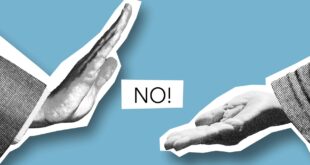The Concept In A Nutshell
Recruiting can broaden its strategic impact by hiring not-yet-promotable candidates (i.e., those who already meet 50% of the promotion criteria). If those recent hires continue developing, they will strengthen your talent pipeline and speed up internal movement/promotions. The only recruiting process change that will be needed is to assess each finalist on their ability to do “both this job and their next job” (i.e., their promotability within 18 months).
This recruiting strategy evaluates top candidates based on their potential for rapid advancement and their current qualifications, addressing the recruiting outcomes of the present while addressing future needs.
The Many Benefits Of Not-Yet-Promotable Recruiting
I call them “not-yet-promotable” (NYP) candidates because if they continue their development within 18 months, they will likely be eligible for a promotion. Some of the benefits that these new-hires will add to your team include:
- You will build your bench strength faster – by already being more than halfway qualified for promotion. These NYPs increase the size of your team’s talent pipeline for higher grade and leadership positions. And with half of the qualifications under their belt. They can obviously move into that next job much faster than employees who start their development from scratch.
- Internal replacements will fit and get up to speed quickly – when a “next level up” position is filled internally. You can be assured that the candidate will “fit” your culture and your way of doing business. And because they have been working for your organization for at least a year. Their extensive knowledge of the company will mean that, unlike external hires, they will get up to your expected productivity level almost immediately
- More internal promotions will improve employee retention – because promotions and career movement are always near the top of employee concerns. Making employees aware that you proactively encourage internal promotions will directly improve future recruiting while simultaneously reducing new-hire turnover.
- There will be fewer development issues – a new-hire with only “this job” qualifications might take years before your development efforts could make them promotable. However, a NYP qualified employee will likely be able to add the remaining promotional qualifications in half the time. And with less development required, that will reduce your development costs and the risk of a development failure dramatically.
- NYPs will also help build leadership bench strength – if the next level-up job requires leadership skills. Whenever you hire a candidate who already has these leadership skills, you are increasing the size of the leadership development talent pool, which is critical in a rapidly growing organization.
- Their additional skills will allow a NYP to fill in work when needed – because the new-hire already has some advanced skills. In most cases, they will be able to “fill in” for other employees when needed.
- They will also provide team member support – because these new-hires have additional skills that most of their teammates don’t have. Each NYP will be able to coach and be a role model for other team members.
—————————————
Implementation Steps For NYP Recruiting
If you decide to modify your recruitment to include identifying finalists that are not-yet-promotable. Here are some implementation/action steps to consider.
- Focus your “NYP” recruiting – at least initially, until you get all the bugs worked out. It makes sense to focus your NYP recruiting exclusively on the finalists for your key jobs. Your next priority should be the next level-up jobs that have had few internal candidates.
- Add “next job” promotion criteria to your assessment – for each open key job. Make a list of the promotional requirements for its “next job.” And use this list when scanning their resume and during interviews. To determine the percentage of the promotional criteria that each finalist meets. And if your ATS system allows it, you can automate that search. By running the resume of each finalist through the job description for the appropriate “next job.”
- Ask their references about their promotability – for each finalist, specifically ask each reference to assess their promotional qualifications and their likelihood of qualifying for any promotion in the next 18 months. If the candidate is an employee referral, ask the referring employee to rate their promotability.
- Identify their promotion goals, expectations, and plans – during finalist interviews. Subtly probe them about their interest in being promoted. And what steps they are taking (or planning to take) in order to prepare themselves for the next one. Incidentally, merely showing your company places a high value on promotions might by itself excite the candidate.
- Calculate their promotional history – a history of rapid promotions is often an indicator that they have mastered the promotion process. So, it makes sense to review their resume or LinkedIn profile to calculate the frequency of their past promotions.
- Give them a “next job” problem to solve – the ultimate assessment of their ability to do “the next level-up job.” This is to give them a real problem to solve that they will face in their next job during the final interview.
- Look for broader indications of their promotability – in addition to the actual promotional requirements for the next job. It pays to broaden your assessment so that it also covers most of the common indicators of a promotable candidate. Those indicators should include a record of continuous accomplishments, seeking more responsibility, self-directed learning, adaptability, and self-motivation.
- Run the metrics to determine if the process is working – although you will need to wait a while. It makes sense to run the metrics in order to determine if your NYPs are actually getting promoted at a faster rate. And whether the process is having any impact on diversity.
| If you only do one thing – you can generate “proof of concept” in your own organization by identifying any recently promoted individuals in your group. They were promoted within two years of their hire date. Next, examine their old resume in order to determine how many of the “next job up” promotion criteria they already had as a candidate. Obviously, the higher the number of recently hired candidates who were NYPs, the better. |
Final Thoughts
This NYP recruiting approach is designed specifically for organizations that are (or want to be) growing rapidly. Because it increases the number of recent hires who are quickly eligible for promotion to the next level-up job, it also has the added benefit of increasing the number of next-level jobs filled by internal candidates. This increase boosts employee development, engagement, and retention. Fortunately, it can accomplish each of these goals without any major modification to your recruiting effort.
Author’s Note
Please spread these ideas by sharing this article with your team/network and by posting it on your favorite media.
Also, join the well over 20,000+ that follow or have connected with Dr. Sullivan’s community on LinkedIn.
And, if you don’t already subscribe to Dr. Sullivan’s Aggressive Talent Management articles, you can do that here.
 Dr John Sullivan Talent Management Thought Leadership
Dr John Sullivan Talent Management Thought Leadership


